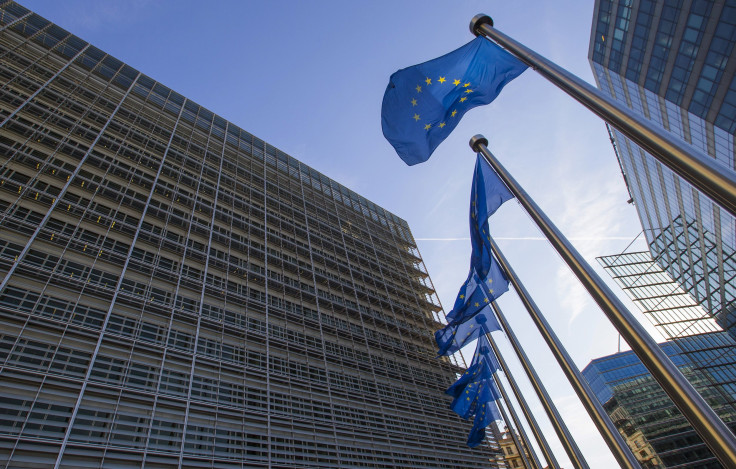EU Shuts Down Tax Loopholes As It Targets Google, Apple, Amazon And Facebook

U.S. companies have criticized radical reforms being proposed by the European Union that aim to shut down loopholes the likes of Apple, Google, Facebook and Amazon are using to artificially lower their tax bills. A group lobbying on behalf of the U.S. companies calls the reforms an effort to “pad the coffers of foreign governments,” but at least one tax expert says the efforts will fall flat as companies will simply find new loopholes to circumvent the new system.
The Anti Tax Avoidance Package was introduced on Thursday by Pierre Moscovici, Europe’s tax commissioner, who said they will aim to “hamper aggressive tax planning, boost transparency between Member States and ensure fairer competition for all businesses in the Single Market.”
Among the key proposals being introduced are legally binding measures to block the most common methods used by companies to avoid paying tax and a recommendation to member states on how to prevent tax treaty abuse. To improve transparency, the commission is also proposing that the 28 EU member states share tax-related information on multinationals as well as creating a new process for listing countries that “refuse to play fair.”
Ahead of the announcement, American Innovation Matters — a lobbying group that includes U.S. companies like Cisco, Boeing, Apple, Intel and Facebook — called the EU proposals “the latest example of the aggressive moves being made abroad in an effort to tax even more American earnings, and use them to pad the coffers of foreign governments.”
The proposals were announced as the European Commission confirmed it had received a complaint about the controversial tax deal Google struck with the U.K. government last week to pay 130 million pounds ($185 million) in taxes covering a 10-year period from 2005 to 2015. The sum has been called “derisory” and the U.K. government has come under pressure to explain how it came up with the figure.
The EU’s antitrust chief, Margrethe Vestager, told the BBC’s “Today” program: “If we find there’s something to be concerned about, if someone writes to us and says maybe this is not how it should be, then we’ll take a look.” The Scottish National Party has confirmed it sent such a letter to Brussels asking the commission to investigate if the deal constituted state aid.
While Moscovici would not be drawn out on questions about Google’s tax issues in Europe, he denied that the new proposals would see a “race to the bottom” among EU member states looking to attract multinationals by offering increasingly lower corporation tax rates.

Indeed that practice is already happening, with Ireland offering a 12 percent tax rate that has seen Google, Apple, Facebook and Amazon all setting up operations in the country. The U.K. is following suit, with its corporation tax rate dropping from 28 percent in 2010 to 20 percent today, and some expecting the Treasury to announce a further drop to 18 percent.
In parallel with the EU proposals, on Wednesday, 31 members of the Organization for Economic Cooperation and Development signed an agreement reached last October laying out new rules to stop companies from using complex tax arrangements to avoid paying corporation tax. Despite these efforts by the EU and OECD, the impact on U.S. multinationals is unlikely to be significant.
“These proposals will make it more difficult for multinational companies to shift profits to lower-taxed countries [but] I don’t think it will prevent that altogether,” Professor Michael Devereux, director of the Oxford University Centre for Business Taxation, told International Business Times. “I think over time companies will find ways around some of the closing of the loopholes.”
When asked if the new proposals would prevent the controversial Google tax situation from arising again, Moscovici declined to comment.
The biggest problem facing regulators is the international taxation system, which is incredibly complex, and the efforts being made by individual governments, the European Union and the OECD are simply not addressing the real issues. “The international tax system is in a mess and it needs fundamental reform and none of these proposals are really creating fundamental reform, they are just fixing loopholes,” Devereux said.
For real change to take place in Europe on tax matters it would require the agreement of all 28 member states and that is highly unlikely to happen, particularly as the U.K. prepares to vote on whether to stay in the EU.
As well as another potential investigation into Google by Europe — the search giant is already being investigated over anti-competitive practices related to online shopping and Android — the commission’s antitrust regulators are also investigating Apple’s tax arrangements. The investigation is seeking to establish whether Apple reached a sweetheart deal with the Irish government to pay significantly less tax, with a ruling expected in March. Last week, Apple CEO Tim Cook and Vestager had a private meeting where it is thought the investigation was discussed.
The commission says that tax legislation in Europe dates back to the 1930s and needs to be updated to meet “today’s global, digital economy.” It adds that multinational companies operating in several European countries pay on average 30 percent less tax than a company operating in a single European country.
© Copyright IBTimes 2024. All rights reserved.






















